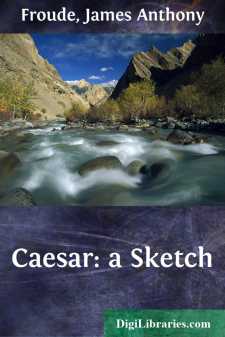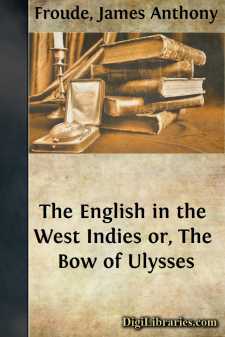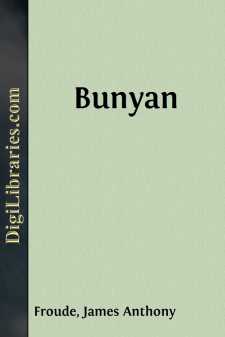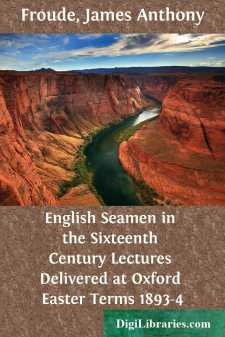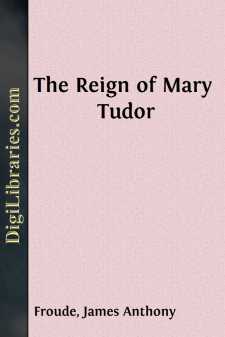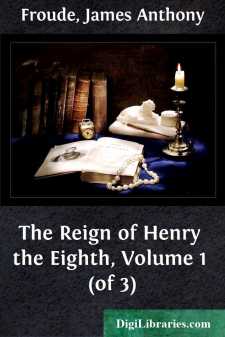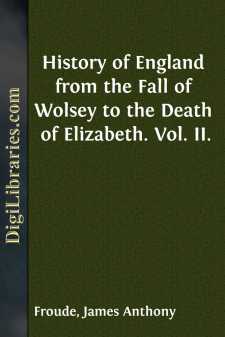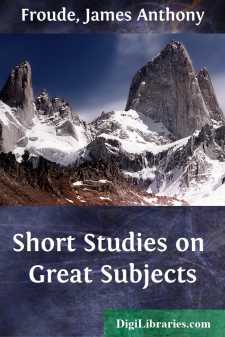Categories
- Antiques & Collectibles 13
- Architecture 36
- Art 48
- Bibles 22
- Biography & Autobiography 815
- Body, Mind & Spirit 144
- Business & Economics 28
- Children's Books 18
- Children's Fiction 14
- Computers 4
- Cooking 94
- Crafts & Hobbies 4
- Drama 346
- Education 58
- Family & Relationships 59
- Fiction 11835
- Games 19
- Gardening 17
- Health & Fitness 34
- History 1378
- House & Home 1
- Humor 147
- Juvenile Fiction 1873
- Juvenile Nonfiction 202
- Language Arts & Disciplines 89
- Law 16
- Literary Collections 686
- Literary Criticism 179
- Mathematics 13
- Medical 41
- Music 40
- Nature 180
- Non-Classifiable 1768
- Performing Arts 7
- Periodicals 1453
- Philosophy 65
- Photography 2
- Poetry 896
- Political Science 203
- Psychology 44
- Reference 154
- Religion 515
- Science 126
- Self-Help 85
- Social Science 83
- Sports & Recreation 34
- Study Aids 3
- Technology & Engineering 59
- Transportation 23
- Travel 463
- True Crime 29
James Anthony Froude
James Anthony Froude was a prominent English historian, biographer, and novelist of the 19th century, renowned for his works on Tudor history and his close association with the controversial historian Thomas Carlyle. His major works include "History of England from the Fall of Wolsey to the Defeat of the Spanish Armada," which significantly influenced Victorian views on the Reformation and the Elizabethan era. Froude's writing style, characterized by its narrative flair and polemical tone, often stirred debates, blending historical analysis with his personal religious and philosophical convictions.
Author's Books:
Sort by:
CHAPTER I. To the student of political history, and to the English student above all others, the conversion of the Roman Republic into a military empire commands a peculiar interest. Notwithstanding many differences, the English and the Romans essentially resemble one another. The early Romans possessed the faculty of self-government beyond any people of whom we have historical knowledge, with the one...
more...
CHAPTER I. Colonial policy—Union or separation—Self-government—Varieties of condition—The Pacific colonies—The West Indies—Proposals for a West Indian federation—Nature of the population—American union and British plantations—Original conquest of the West Indies. The Colonial Exhibition has come and gone. Delegates from our great self-governed dependencies have met and consulted...
more...
EARLY LIFE. 'I was of a low and inconsiderable generation, my father's house being of that rank that is meanest and most despised of all families in the land.' 'I never went to school, to Aristotle or Plato, but was brought up in my father's house in a very mean condition, among a company of poor countrymen.' 'Nevertheless, I bless God that by this door He brought me...
more...
LECTURE I THE SEA CRADLE OF THE REFORMATION Jean Paul, the German poet, said that God had given to France the empire of the land, to England the empire of the sea, and to his own country the empire of the air. The world has changed since Jean Paul's days. The wings of France have been clipped; the German Empire has become a solid thing; but England still holds her watery dominion; Britannia does...
more...
INTRODUCTION. The memory of no English sovereign has been so execrated as that of Mary Tudor. For generations after her death her name, with its horrid epithet clinging round it like the shirt of Nessus, was a bugbear in thousands of Protestant homes. It is true that nearly 300 persons were burnt at the stake in her short reign. But she herself was more inclined to mercy than almost any of her...
more...
INTRODUCTION James Anthony Froude was born at Dartington Rectory, the youngest son of the Archdeacon of Totnes, on April 23, 1818. His father was a clergyman of the old school, as much squire as parson. In the concluding chapter to his History of England, Froude wrote that "for a hundred and forty years after the Revolution of 1688, the Church of England was able to fulfil with moderate success the...
more...
THE PROTESTANTS. Where changes are about to take place of great and enduring moment, a kind of prologue, on a small scale, sometimes anticipates the true opening of the drama; like the first drops which give notice of the coming storm, or as if the shadows of the reality were projected forwards into the future, and imitated in dumb show the movements of the real actors in the story.Prelude to the...
more...
THE SCIENCE OF HISTORY: A LECTURE DELIVERED AT THE ROYAL INSTITUTION February 5, 1864. Ladies and Gentlemen,—I have undertaken to speak to you this evening on what is called the Science of History. I fear it is a dry subject; and there seems, indeed, something incongruous in the very connection of such words as Science and History. It is as if we were to talk of the colour of sound, or the longitude...
more...


